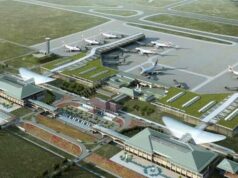China Evergrande dodges default again, but where is the money coming from?
By
Rhiana Whitson
China Evergrande Group has been lurching from one debt deadline to another and has so far managed to avoid default, but where is the money coming from?
Key points:
- China Evergrande Group once again averted a default with a last-minute bond payment on Wednesday
- The collapse of the developer would have flow-on effects for Australia’s economy
- Analysts say it appears the Chinese government is working behind the scenes to prevent Evergrande’s collapse
The story of the world’s most indebted developer teetering on the brink of collapse, and the potential for it to trigger economic pain globally, has captured headlines around the world.
On Wednesday, the cash-strapped developer once again averted a disaster with a last minute bond payment.
This time customers of international clearing firm Clearstream received overdue interest payments on three dollar bonds issued by Evergrande.
It’s the third time in the past month the company has paid up dangerously close to a deadline. The bonds had a total of more than $US148 million ($A203 million) due.
But the cash-strapped developer still has about $US300 billion ($A412 billion) in liabilities.
If Evergrande failed, it could trigger the collapse of the Chinese property market, which would cripple China’s economy.
China is Australia’s biggest trading partner, which means the local economy could suffer, too. Iron ore prices have already taken a hit as construction in China slows down.
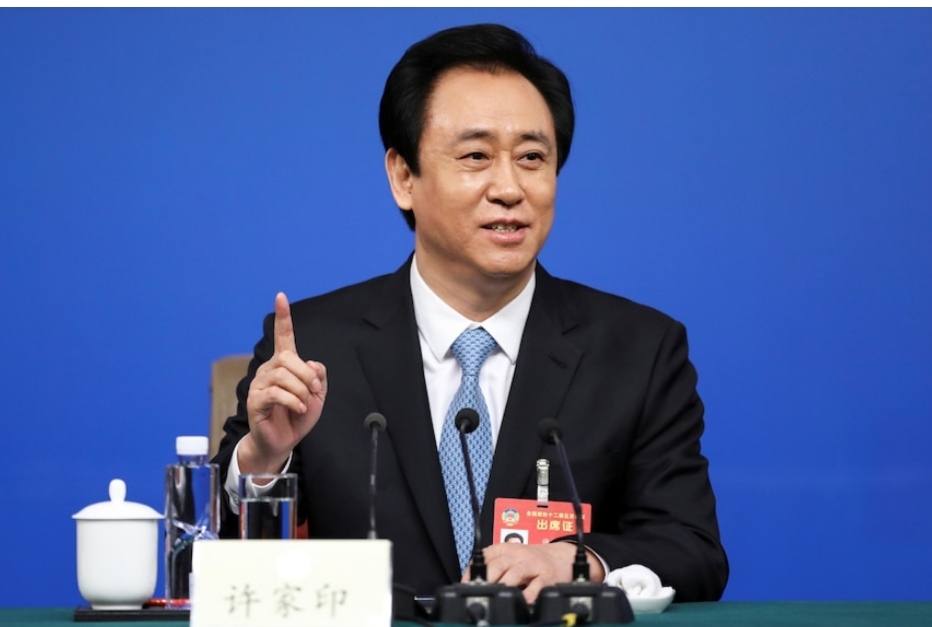
Some media outlets have reported the Evergrande Group Chairman Xu Jiayin may have to repay some of the debt from his personal wealth.
Where is the money coming from?
Weiping He, a researcher in financial markets regulation and company law from Monash University, said it was likely that the Chinese government was working behind the scenes to help Evergrande meet the payment deadlines.
China’s property bubble may burst
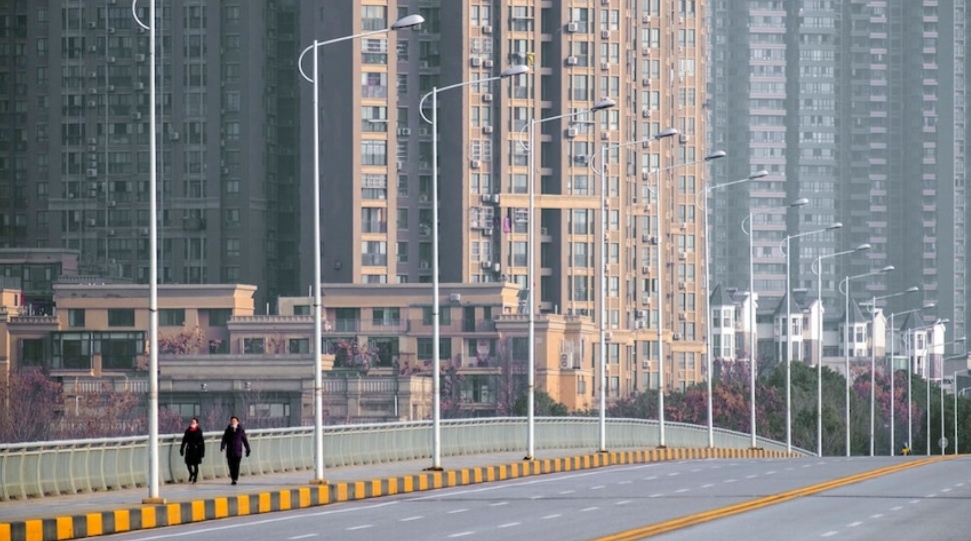
Once a symbol of glittering success, China’s biggest property group is tanking, dragging many of its competitors with it, writes Ian Verrender.
“Local financial institutions could be helping, and that is the hand of the government at work,” she said.
“Local companies, which are state-owned or otherwise privately owned companies would also be encouraged by the government to come in to assist individual housing projects or subsidiaries to ensure that housing projects are delivered.”
Reuters has reported the Chinese Communist Party (CCP) has been telling government owned firms and state-backed property developers such as China Vanke to buy some of Evergrande’s assets.
The CCP is said to be unlikely to directly intervene in the form of a bailout.
A handful of government-owned enterprises have already done due diligence on assets in the southern Chinese city Guangzhou, according to Reuters.
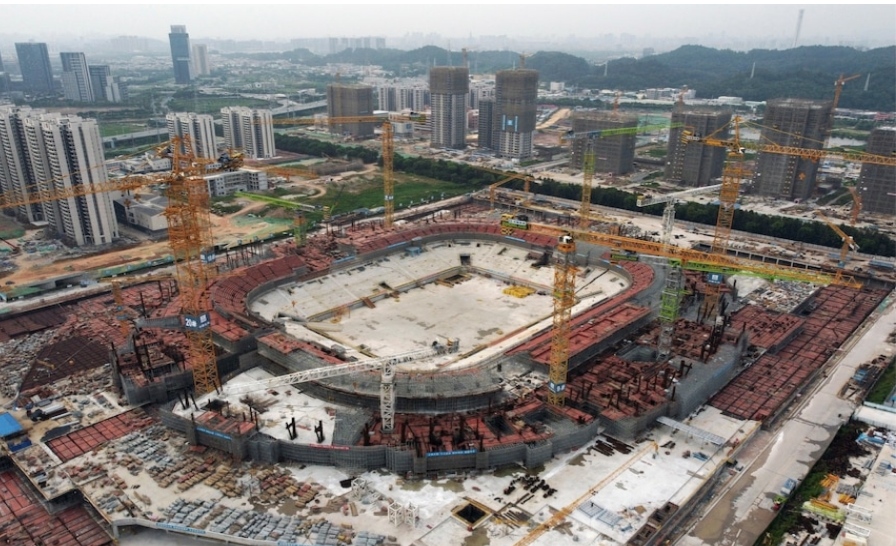
A state-owned company is said to be a potential buyer for the unfinished Guangzhou Evergrande Soccer Stadium, which was developed by China Evergrande Group.
Guangzhou City Construction Investment Group is said to be close to acquiring Evergrande’s Guangzhou FC Soccer stadium and surrounding residential projects.
The stadium is believed to around 12 billion yuan ($A2.6 billion) and has been designed to seat more than 100,000 — making it the world’s largest venue built for soccer by capacity.
Overseas media have also reported that Evergrande’s billionaire founder and chairman Xu Jiayin could be forced to pay some of the debt from his personal wealth.
Some outlets have reported that Evergrande have sold off private jets and that a mansion has been used as collateral to secure bank loans.
Xu is worth an estimated $7.2 billion ($A9.89 billion), according to Bloomberg’s Billionaire Index. But with the company’s liabilities around 40 times that, Xu alone could not save Evergrande.
What’s next for Evergrande?
Evergrande’s future will hang in the balance for some time yet.
Bankers and analysts told Reuters that Beijing would stand firm on policies to curb excess borrowing by property developers, even as it makes financing tweaks amid an industry liquidity crunch.
China’s property giant collapse might not hurt the world’s economy, but pain lies ahead for Australia
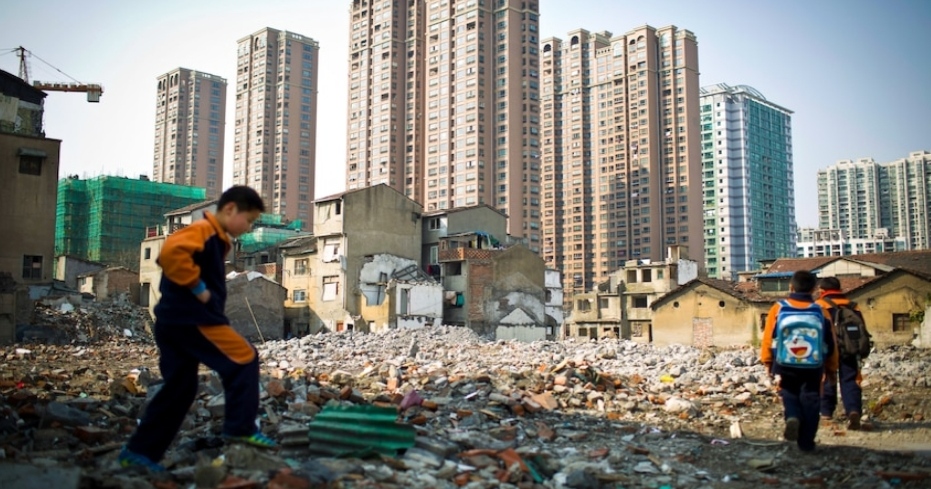
As speculation over Evergrande’s future continues, there’s a growing belief among analysts that the world’s second biggest economy is heading for a slow wind-down that will be painful but predictable.
Ms He does not believe Evergrande would formally default, with the most likely outcome a gradual restructure.
“It will still survive. Evergrande’s Investors and creditors are probably last on the the government’s priority list,” she said.
“The government cares about the people who have paid lots of money to buy residential apartments from the company to live in.
“That’s the aim of the government. It is a stability issue.”
Evergrande’s next payment deadline is on December 28, when it’s due to cough up more than $255 million ($A350 million) in coupon payments.
Source: ABC News



